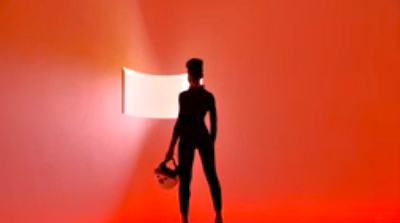“Feds Watching”: The Micro-politics of Blackness in the Age of Surveillance by Mark Anthony Neal
 “Feds Watching”: The Micro-politics of Blackness in the Age of Surveillance
by Mark Anthony Neal | NewBlackMan (in Exile)
“Feds Watching”: The Micro-politics of Blackness in the Age of Surveillance
by Mark Anthony Neal | NewBlackMan (in Exile)Twenty-five years ago, the strident political commentary of artists like Public Enemy, KRS-One, Poor Righteous Teachers and (even) N.W.A.—rendered as sub-cultural, underground interventions—served as forms of micro-politics, that politicized a generation of Black youth. We’d all be lying if we thought that such interventions were possible in the mainstream of American entertainment in 2013—or more importantly, if we would be comfortable it were.
Subversion on the level of micro-politics—what James C. Scott has called “hidden transcripts” in one iteration and Robin D.G. Kelley has called “informal infrapolitics” in another—was never intended to be broadcast writ large for mass consumption; something apropos to the slave holders and overseers translating field hollers. It only makes sense, now that every corporation in the world is literally in the room—from McDonald’s to Samsung—that rap music would contain very little of the content that some deem necessary for liberation (a term that has been amorphous enough, since that first generation walked off–and some walked back on to—those plantations).
Yet the genius of Blackness—even in the guise of so-called “commercial” rap music—is that the micro-politics always remain, wedded to a subversion of the moment, that is as unsustainable as it may be undecipherable—hence its value to the moment.
Enter exhibit A: the music video for “Feds Watching,” 2 Chainz’s new collaboration with Pharrell Williams (directed by Ryan Hope), that reads as some two decade’s old mash of Miami Vice and The Wire—a nostalgic kiss to an era when Mafioso fantasies served as master narratives to mid-1990s artists consumed with controlling their own financial and artistic fates, within corporate entities with little interests in either (let alone Black liberation).
The silhouetted Black woman who appears in the video’s opening sequence and who remains on the periphery of the action throughout, is a subtle reminder that sometimes surveillance comes in the guise of that which you most desire, most objectify and most fetishize—and for the sake of argument, let me just suggest in this context, the Obama Presidency. “Feds Watching” takes on more significant meaning in the age of surveillance, where even if the first Black President didn’t create the current conditions in which such surveillance operates, he has surely carried the water for it.
The flattened “luxury rap” images that so many of us have become all too de-sensitized to—or what Fahamu Pecou describes as “controlling images” that “privilege hyper-materiality and often celebrates iniquitous behaviors through popular rap music, videos, magazines, and other media ultimately infecting the overall perception of "success" in contemporary black male culture”—are just small inklings of how easily Celebrity culture slips into a mode of surveillance. The goal, perhaps, to make sure that Celebrity culture doesn’t produce another generation of figures like Jean Seberg, Harry Belafonte, Marlon Brando, Hazel Scott, Jane Fonda, Paul Robeson, Canada Lee or any number of folks who were Blacklisted during the so-called Red Scare of the early 1950s.
All we have to do is go back to the NBA’s Gold Club sex scandal of twelve years ago to remember how the subsequent trial—less about the treatment of and conditions with which women work within Strip Clubs—essentially gutted Black NBA players of any moral footing. The story of the scandal broke only two years after the players were locked-out and four years before “The Malice at the Palace” forever altered the relationship of NBA players to their employers and the paying public.
“Feds Watching” is not so much about the gaze of the State, but 2 Chainz’s response to it: “I’m be fresh as hell if the Feds is Watching…drop toppin’, head boppin’.” Not simply an obliviousness for the moment, the lyric (repeated throughout the chorus) is an invocation of Black style as a response to and even defense against State Surveillance.
On the one hand, it isabout the choice to live your life in spite of these realities (and act of defiance, really) but also to embrace— “a style that nobody can deal with” as Tricia Rose offered in Microphone Fiendsa generation ago—as a means of obscuring living your life under the realities of State Surveillance. This both/and scenario recalls Saidiya Hartman’s now famous intervention that “the pageantry of the coffle, stepping it up lively on the auction block, going before the master, and the blackface mask of minstrelsy and melodrama all evidenced the entanglements of terror and enjoyment.” (Scenes of Subjection, 23)
Indeed “Black Twitter” is a “Big Data” version of everyday subversions, which per the researchof Cathy Cohen and Joseph E. Kahne, serve as building blocks in which Black youth—often under the guise of play or dis-respectability—push the boundaries of technologies, eventually adapting them to the idiosyncrasies of their lives.
To be sure, this is not a model for traditional political resistance of the electoral or extra-electoral kind, but no less meaningful for those who engage in those micro-politics and those who watch these micro-politics, as they congeal grander narratives of everyday resistance—the kinds of resistance(s) that Black folk have historically embraced before being able to coalesce around more sustainable Movement politics.
***
Mark Anthony Neal is Professor of African & African American Studies at Duke University and the author of several books, including the recent Looking for Leroy: Illegible Black Masculinities (NYU Press). This fall Neal will be a Fellowat the Hiphop Archives at the W.E.B. DuBois Institute at Harvard University. Follow him on Twitter: @NewBlackMan
Published on August 04, 2013 20:25
No comments have been added yet.
Mark Anthony Neal's Blog
- Mark Anthony Neal's profile
- 30 followers
Mark Anthony Neal isn't a Goodreads Author
(yet),
but they
do have a blog,
so here are some recent posts imported from
their feed.



